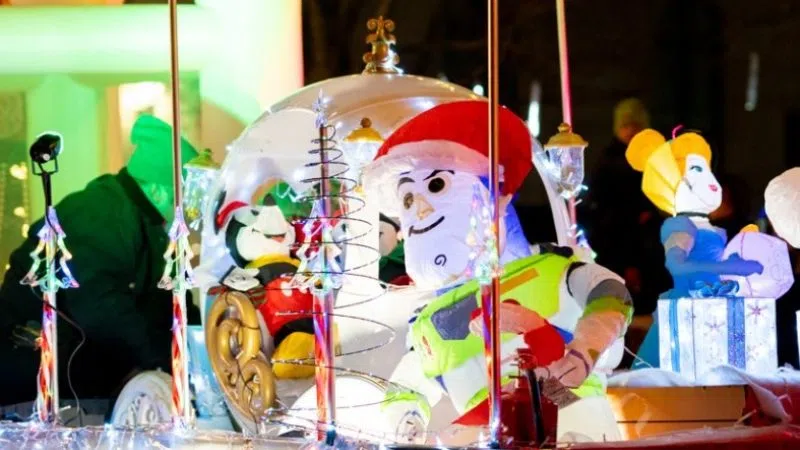It was 53 years ago today (March 30th, 1967) that the Beatles posed for their famous Sgt. Pepper's Lonely Hearts Club Band album cover. The Beatles, who were sporting psychedelic marching band outfits, had designed the album cover concept with then husband and wife team Peter Blake and Jann Haworth, explaining that they wanted the crowd behind them to include “people they liked.”
Blake created the scene of the group being flanked by their audience, using mainly cardboard cut-out photographs of famous people. The final shot, which was photographed by the late Michael Cooper, has gone on to be one of the most revered and imitated album covers in rock history. Among the famous figures that the group's record company EMI flat out rejected were John Lennon's suggestions of Jesus Christ, Mahatma Gandhi and Adolph Hitler — although cardboard cutouts of Gandhi and Hitler were prepared.
The label made the Beatles write to each of the people appearing on the cover and ask them for permission. Prior to granting approval, Mae West responded by asking, “What would I be doing in a lonely hearts club?” Only Bowery Boy star Leo Gorcey declined, after requesting $400. (He was eventually blocked out by a painted-on palm tree).
Among the many 72 faces featured in the cover are Lenny Bruce, W.C. Fields, Edgar Allan Poe, psychoanalyst Carl Jung, Dion, Fred Astaire, Bob Dylan, Aldous Huxley, Tony Curtis, Marilyn Monroe, Stan Laurel and Oliver Hardy, Karl Marx, original Beatles bassist Stuart Sutcliffe, Oscar Wilde, Albert Einstein, Marlene Dietrich, and Shirley Temple.
Also featured on the cover were figures on loan from Madame Tussaud's Wax Museum, of former heavyweight champion Sonny Liston and the Beatles themselves with their earlier “mop-top” look. A wax figure rumored to be the Beach Boys' Brian Wilson has cropped up on several photos from the session. A doll featured in the corner of the cover wore a sweater declaring “Welcome The Rolling Stones,” as a nod to the group's good friends and friendly rivals.
In 1995's Beatles Anthology, George Harrison credited Paul McCartney with coming up with the concept of the Beatles taking on an alter-ego for Sgt. Pepper: “Well really, it was Paul who had been on a plane journey with (Beatles road manager) Mal Evans and come up with this idea of Sgt. Pepper. And he was just kind of. . . To me, we were just kind of in the studio to make the next record, and he was going on about this idea of some fictitious band.”
Paul McCartney recalled some of the snags that the Beatles faced with their label EMI while creating the mosaic of people surrounding them on the Sgt. Pepper cover: “There was a bit of dispute about this cover, y'know, everyone — 'Oh, you can't do t hat!' Y'know? 'Cause that's the thing if you're being free, it's obviously a lot of people saying, “Naughty! Watch it.' He was great (EMI Chairman) Sir Joe (Lockwood), actually. He was very good during that time. 'Cause, I think it must've come as shock to him, all this stuff. Anyway, he came around to my house and said, 'I'm afraid old chap, we can't have Gandhi (laughs).' (I said) 'Whaddya mean, can't? He's alright! Y'know, what's wrong with him?' 'Well,' he said, 'Might offend the Indians.'”
Sgt. Pepper's Lonely Hearts Club Band was released on June 1st, 1967 and hit Number One on the Billboard 200 album charts exactly one month later — marking the first of its 15-week run at the top spot.
In June 2017, the new stereo mix of the Beatles' Sgt. Pepper's Lonely Hearts Club Band hit Number One on the UK album charts and topped out at Number Three in the U.S.











